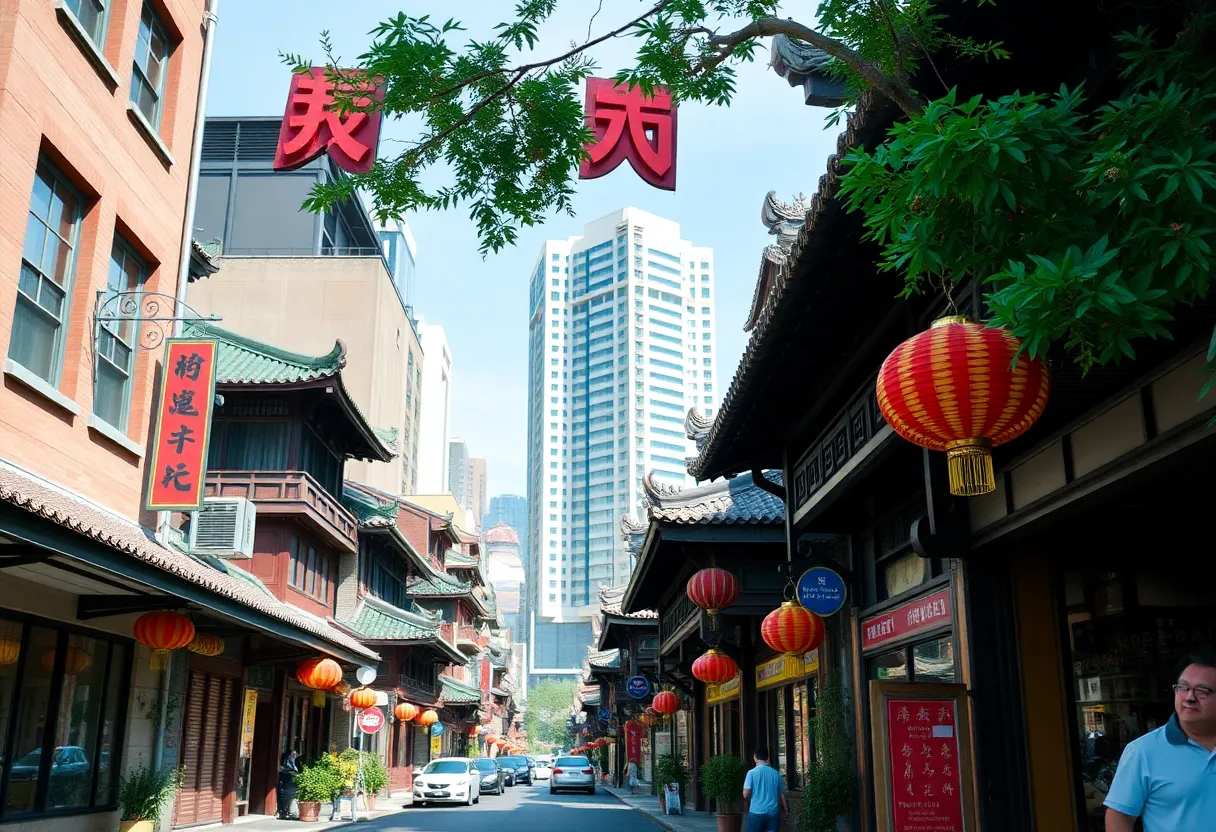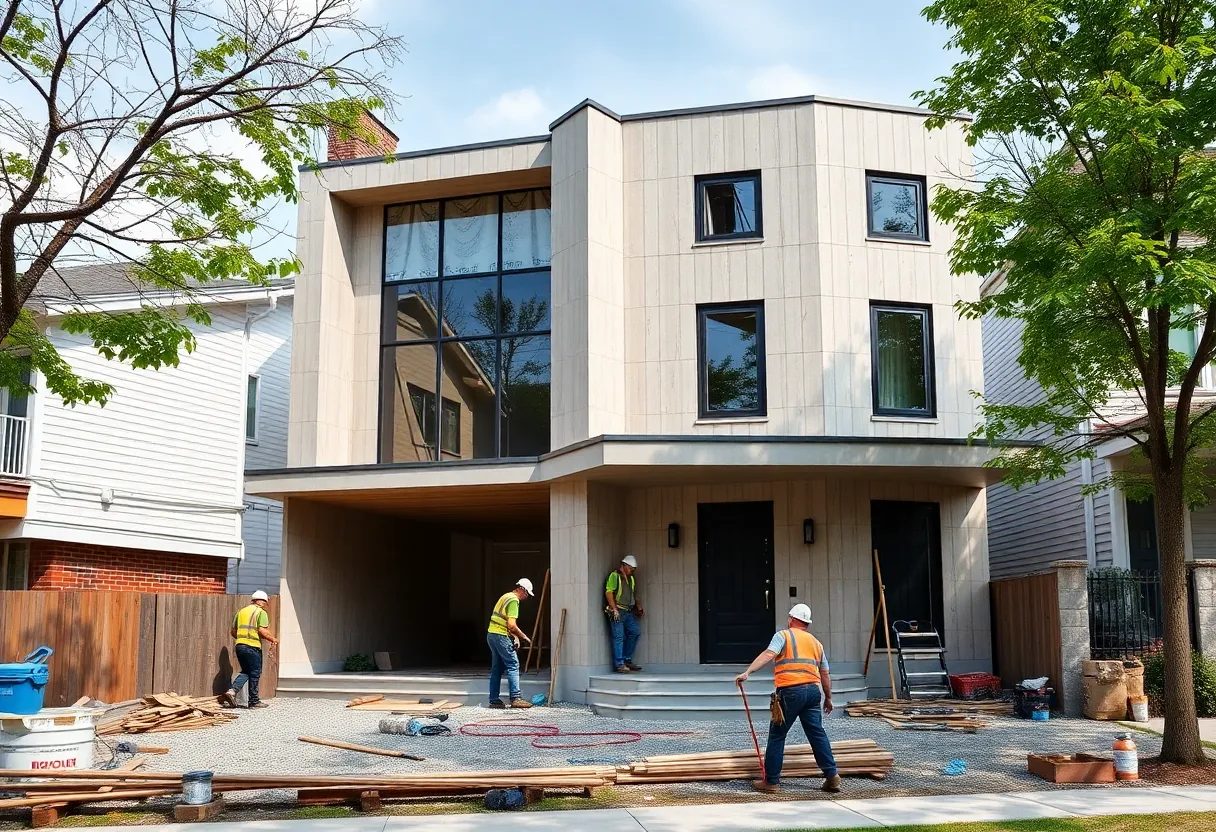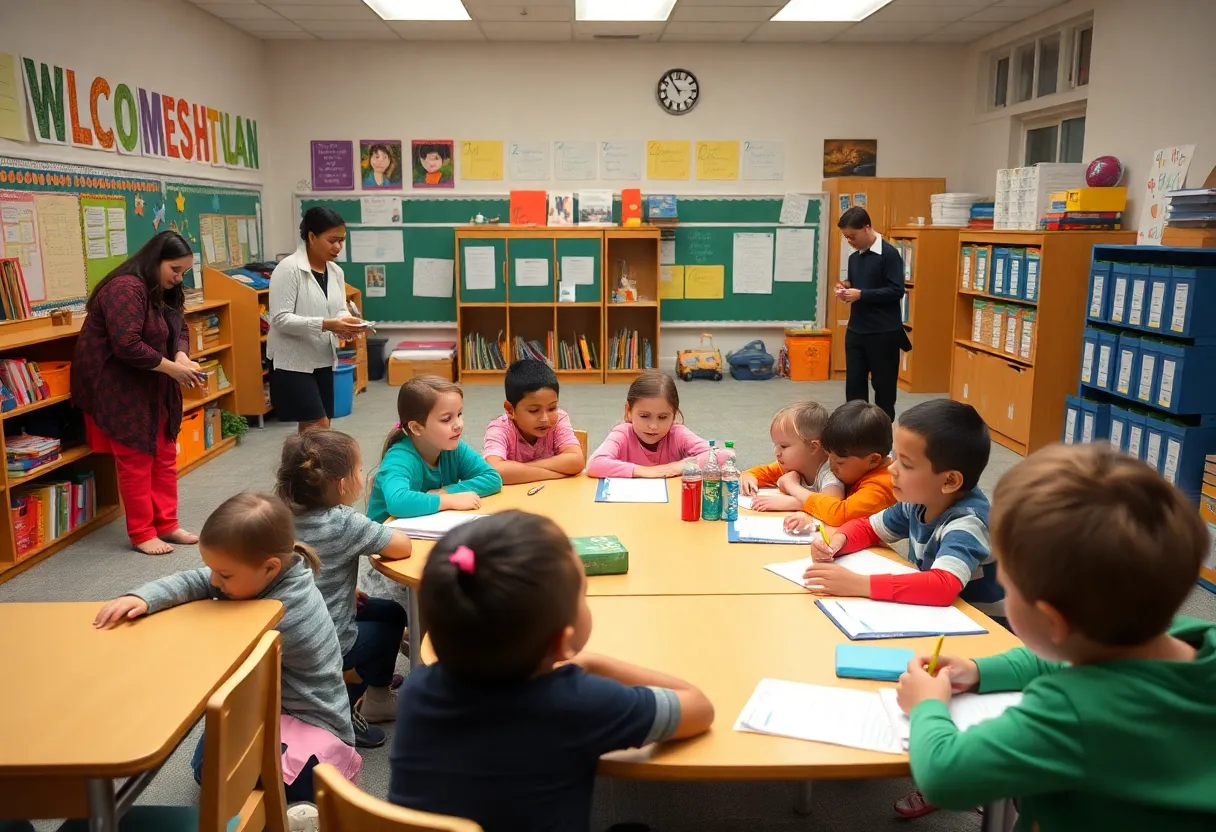News Summary
Washington D.C.’s Chinatown is undergoing significant changes with the closure of two long-standing businesses, sparking community concern over cultural erosion. The new Marriott hotel, replacing Full Kee Restaurant and Gao Ya Hair Salon, raises alarms about the area’s identity amid pressures of gentrification. Local advocates are calling for increased funding and revised tax breaks to protect legacy businesses while emphasizing the need for affordable spaces and community involvement in development projects.
Washington D.C. is witnessing significant transformations in its Chinatown district, raising alarms about the potential loss of its cultural identity. The closure of two long-standing businesses, Full Kee Restaurant and Gao Ya Hair Salon, on July 1, 2023, marks a critical turning point in the neighborhood’s development landscape, as they are making way for a new Marriott hotel.
The hotel project is a partnership between Rift Valley Capital and property owner Eddie Moy, planning to establish a nine-story structure adjacent to historic rowhouses on 6th and H Streets NW. This development has sparked concerns among residents and community advocates about the ongoing cultural erosion in the area.
The Save Chinatown Solidarity Network (SCSN) is actively working to champion the cause of legacy businesses facing displacement, pushing for a more substantial funding allocation in the District of Columbia’s fiscal year 2026 budget. Currently, advocates are requesting $550,000 annually, a notable increase from the current $125,000. They argue that increased funding is essential for supporting small businesses that contribute to the neighborhood’s unique identity.
Community leaders are also calling for revisions to tax breaks offered to developers, demanding not just community involvement in development projects but also the availability of affordable retail spaces for local entrepreneurs. As public safety data indicates a drop in crime rates due to increased police presence, activists see this as an opportune moment to highlight their demands for greater community support.
The ongoing changes in Chinatown have raised alarm bells regarding the dwindling number of AAPI-owned businesses in the area, now down to just nine establishments following the closures. Full Kee Restaurant had served as a staple of the community for over 40 years, recognized for its late-night service and reputation for quality. This long-standing cultural fixture’s closure symbolizes the broader threat to the heritage and community of Chinatown.
Residents are increasingly vocal about their frustrations over soaring rents and the pressures of rapid redevelopment, which many perceive as cultural gentrification. The first vote by the D.C. Council on the FY2026 budget, scheduled for Monday, is viewed as a crucial moment for Chinatown’s future, as local leaders emphasize the need to preserve the neighborhood’s rich heritage instead of allowing it to be replaced by luxury developments.
The demographic shift in Chinatown reflects broader trends in Washington D.C., with Asian residents dropping from 60% in 1990 to around 20% by 2020. Community stakeholders emphasize the importance of fostering small, affordable business spaces that align with local culture, as opposed to large corporate entities taking over the neighborhood.
The Chinatown/Gallery Place Task Force has proposed strategies to enhance the area’s vitality, including attracting Asian grocery stores and promoting cultural festivals. The notices of eviction for Full Kee and Gao Ya were issued three months before their closure, leaving residents feeling neglected during the unfolding developments.
Concerns about losing the historical and cultural essence of Chinatown have resonated strongly among residents. Mayor Muriel Bowser has acknowledged these issues, committing to strategies that will enhance the vibrancy of Chinatown while addressing the needs of existing residents and local businesses.
Recent discussions have also produced suggestions for introducing a new Asian grocery store and other community-oriented projects within the area, providing a glimmer of hope to residents striving to maintain their cultural heritage amidst ongoing changes. The SCSN continues to advocate for policies aimed at protecting and revitalizing Chinatown, focusing on the real needs of its residents and businesses in light of the evolving landscape.
Deeper Dive: News & Info About This Topic
HERE Resources
Additional Resources

Author: STAFF HERE WASHINGTON DC
The WASHINGTON DC STAFF WRITER represents the experienced team at HEREWashingtonDC.com, your go-to source for actionable local news and information in Washington, DC, and beyond. Specializing in "news you can use," we cover essential topics like product reviews for personal and business needs, local business directories, politics, real estate trends, neighborhood insights, and regional news affecting the area—with deep expertise drawn from years of dedicated reporting and strong community input, including local press releases and business updates. We deliver top reporting on high-value events such as the National Cherry Blossom Festival, Kennedy Center Honors, and the Washington Auto Show. Our coverage extends to key organizations like the Greater Washington Board of Trade and Destination DC, plus leading businesses in government contracting and technology that power the local economy such as Lockheed Martin and Amazon. As part of the broader HERE network, we provide comprehensive, credible insights into the dynamic landscape of the Washington metropolitan area.




